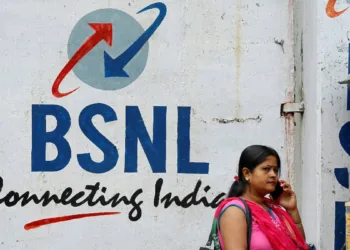The global phenomenon of K-Pop has long been celebrated for its vibrant music, captivating performances, and dedicated fanbase. However, beneath the glittering surface, a brewing crisis threatens to shake the foundations of this thriving industry. The recent news of Blackpink’s Rosé deciding to leave the Korea Music Copyright Association (KOMCA) has sent shockwaves through the music world, raising alarming questions about royalty profit sharing and artists’ rights.
This move highlights deeper issues surrounding how profits are distributed among creators and performers, sparking debates about fairness, transparency, and sustainability in K-Pop. As one of the genre’s most prominent figures takes such a bold step, the industry faces a critical juncture that could redefine the future of music copyright and artist compensation. In this blog post, we delve into the complexities of the royalty crisis, the reasons behind Rosé’s departure, and what this means for K-Pop’s global ecosystem.
Table of Contents
Blackpink Royalty Profit Sharing Crisis in K-Pop: An Overview
K-Pop’s explosive growth has brought immense financial success, but it has also exposed systemic issues in how royalties are shared. The Korea Music Copyright Association, responsible for managing and distributing royalties to songwriters, composers, and artists, has come under scrutiny for its opaque processes and perceived inequities.
Many artists feel that the current system disproportionately favors agencies and producers, leaving performers with a smaller share of the profits generated by their work. This imbalance has led to growing dissatisfaction among artists, who argue that their creative contributions and performances are undervalued in the royalty distribution model.

Rosé’s Departure from KOMCA: A Bold Statement
Rosé’s decision to leave KOMCA is more than a personal career move; it is a powerful statement that underscores the urgency of reform in the K-Pop royalty system. As a member of Blackpink, one of the world’s most successful girl groups, Rosé’s departure draws significant attention to the challenges artists face in securing fair compensation. Reports suggest that her exit is motivated by frustrations over royalty allocations and the desire for greater control over her music rights. This unprecedented step by a high-profile artist has ignited conversations about the need for transparency, artist empowerment, and equitable profit sharing within the industry.

Implications for the K-Pop Industry and Artists
Rosé’s exit from KOMCA could have far-reaching consequences for the K-Pop industry. It may encourage other artists to reconsider their affiliations and demand better terms for royalty sharing. This shift could pressure agencies and copyright organizations to adopt more transparent and fair practices, fostering a healthier environment for creative talent. However, it also poses challenges, such as potential legal disputes and disruptions in royalty collection mechanisms. The industry must navigate these complexities carefully to maintain its global momentum while addressing the legitimate concerns of its artists.
Key Issues in K-Pop Royalty Profit Sharing
| Issue | Description | Impact on Artists and Industry |
|---|---|---|
| Opaque Royalty Distribution | Lack of transparency in how royalties are shared | Artists receive less than their fair share |
| Agency Dominance | Agencies often control majority of profits | Limits artists’ financial independence |
| Artist Rights and Control | Limited control over music rights and royalties | Frustration and potential departures |
| Need for Reform | Calls for transparent, equitable royalty systems | Potential for industry-wide changes |
BTS Jungkook’s “Seven” MV Goes Viral: Fan Reactions and the Anticipation for His Comeback
Frequently Asked Questions (FAQs)
Q1: Why is Rosé leaving the Korea Music Copyright Association significant?
Rosé’s departure highlights growing dissatisfaction among K-Pop artists regarding unfair royalty distribution and signals a call for systemic reform in the industry.
Q2: How could this crisis affect the future of K-Pop?
The crisis may lead to increased demands for transparency and fairness, potentially reshaping royalty systems and empowering artists, but it could also cause legal and operational challenges.








